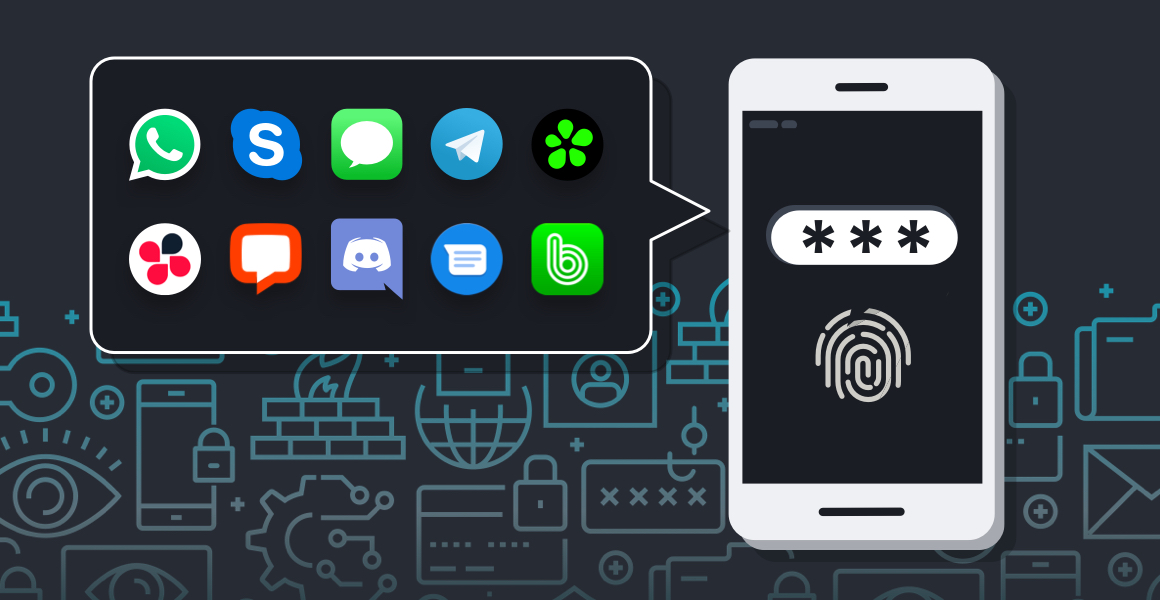In an era where data privacy is a growing concern, it’s crucial to be mindful of the apps we use and the data they collect. Many popular apps have come under scrutiny for their data collection practices, leading users to seek privacy-focused alternatives. In this article, we will explore secure alternatives to popular apps, including messaging apps, browsers, and email clients, that prioritize user privacy and data protection. By opting for these alternatives, you can enhance your app security and protect your personal information.
Secure Messaging Apps

Messaging apps have become an integral part of our daily communication. However, not all messaging apps prioritize user privacy. Here are some secure alternatives that offer enhanced privacy features:
- Signal: Signal is a highly recommended messaging app known for its strong focus on privacy. It offers end-to-end encryption for all messages and calls, ensuring that only the intended recipients can access the content. Signal does not collect user data or store messages on its servers, providing a high level of privacy.
- Telegram: Telegram is another popular messaging app that emphasizes privacy and security. It offers optional end-to-end encryption for secret chats, self-destructing messages, and the ability to hide your phone number. Telegram also allows you to control the storage of your media and offers a “Secret Chat” feature that prevents forwarding and taking screenshots.
- Wire: Wire is a secure messaging app that provides end-to-end encryption for all messages, voice calls, and video calls. It offers features like self-destructing messages, secure file sharing, and multi-device synchronization. Wire is open-source, which means its code is available for public scrutiny.
By switching to these secure messaging apps, you can communicate with peace of mind, knowing that your conversations are protected and your data is not being exploited.
Privacy-Focused Browsers

Web browsers are our gateway to the internet, but they can also track our online activities. If you value your privacy, consider using the following privacy-focused browsers:
- Mozilla Firefox: Firefox is a popular browser known for its commitment to user privacy. It blocks third-party trackers by default, offers enhanced privacy settings, and provides the option to use Firefox Private Browsing mode, which does not save your browsing history, cookies, or site data.
- Brave: Brave is a privacy-centric browser that blocks third-party ads and trackers by default. It offers a built-in ad-blocker, HTTPS Everywhere for secure connections, and a feature called “Brave Shields” that protects your privacy while browsing.
- Tor Browser: Tor Browser is a powerful privacy tool that routes your internet traffic through a network of volunteer-operated servers, making it difficult to trace your online activities. It blocks trackers, prevents fingerprinting, and allows you to access websites anonymously.
By using privacy-focused browsers, you can minimize the amount of data collected about your online behavior and reduce the risk of being tracked across the web.
Secure Email Clients

Email is a primary mode of communication for many individuals and businesses. To ensure the privacy and security of your email communications, consider these secure email clients:
- ProtonMail: ProtonMail is an encrypted email service that provides end-to-end encryption for all messages. It offers zero-access encryption, meaning even ProtonMail cannot read your messages. ProtonMail also supports self-destructing messages and two-factor authentication for added security.
- Tutanota: Tutanota is another privacy-focused email service that offers end-to-end encryption. It stores all emails and contacts encrypted on its servers, preventing unauthorized access. Tutanota also provides a secure calendar and supports confidential mode for sending password-protected emails.
- Posteo: Posteo is a privacy-focused email provider based in Germany. It offers end-to-end encryption, two-factor authentication, and does not log any IP addresses. Posteo also prioritizes sustainability and uses renewable energy for its operations.
By using secure email clients, you can protect your sensitive information from unauthorized access and ensure that your email communications remain confidential.
Conclusion
In conclusion, prioritizing user privacy and data protection is crucial in today’s digital landscape. By opting for secure alternatives to popular apps, such as messaging apps, browsers, and email clients, you can enhance your app security and protect your personal information. Consider switching to secure messaging apps like Signal or Telegram, using privacy-focused browsers like Firefox or Brave, and utilizing secure email clients like ProtonMail or Tutanota. Share your own tips and experiences in the comments below to contribute to the dialogue on app security. Together, we can create a more privacy-conscious digital environment.






